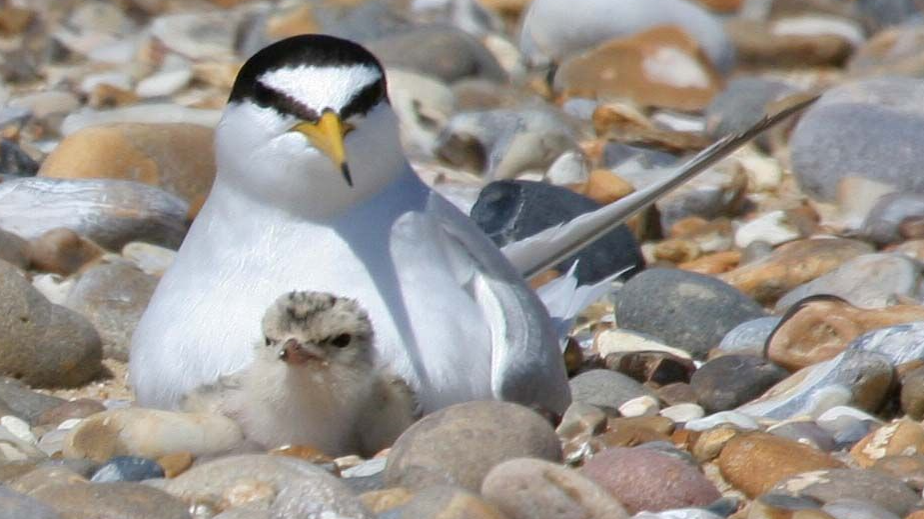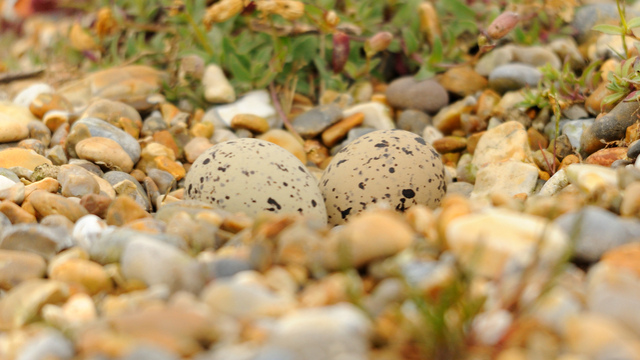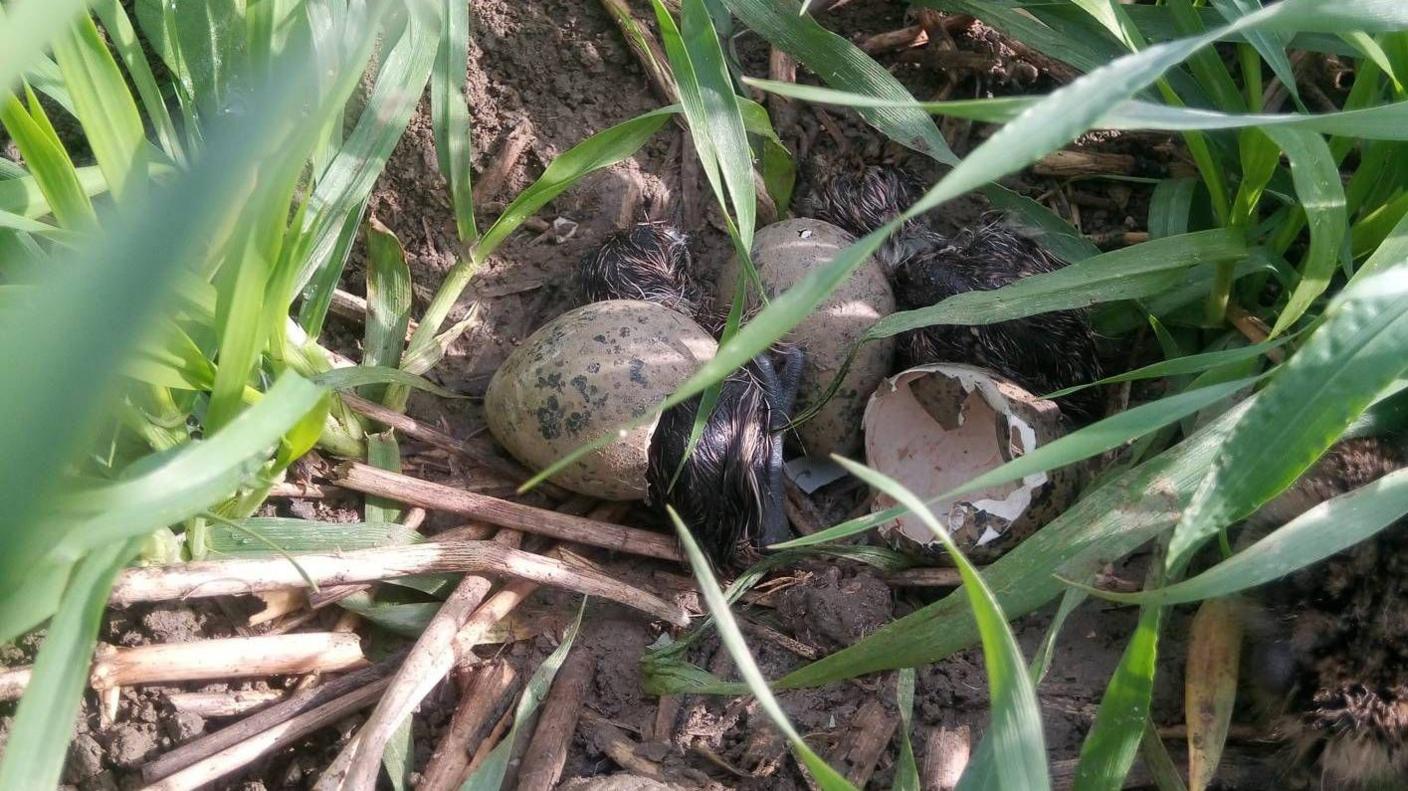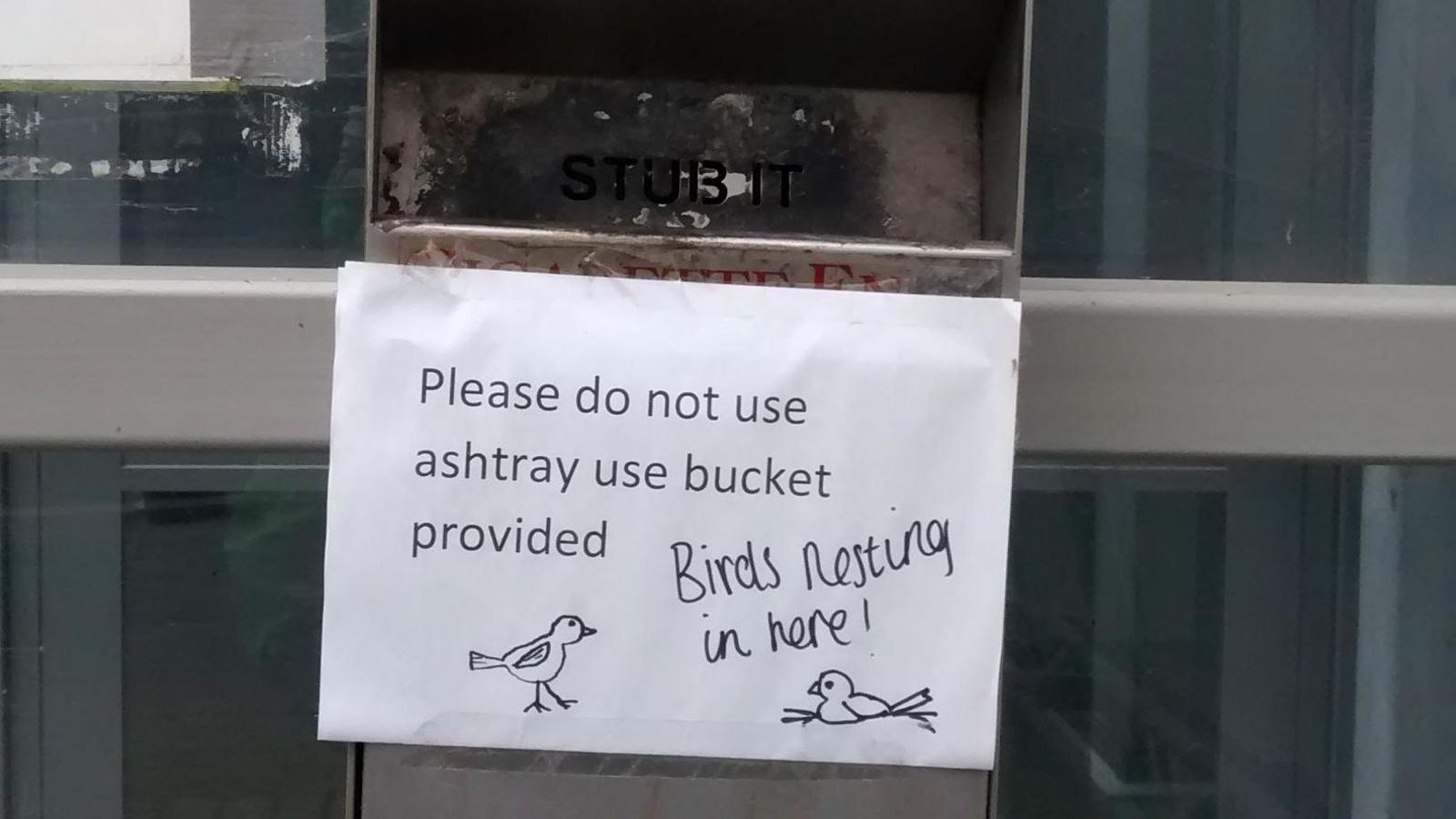Campaign begins to protect beach-nesting birds

A little tern with a chick in a nest on a shingled beach
- Published
A campaign has begun to raise awareness of beach-nesting birds and their vulnerable nests.
Called Share our Shores, external, it has been launched by the Essex Wildlife Trust (EWT), Bird Aware Essex and the Royal Society for the Protection Of Birds.
EWT said beach-nesting birds like ringed plover, oystercatcher and little tern have been "facing declines since the 1980s".
The public has been urged to follow simple guidelines so the birds can lay their eggs and raise chicks safely.
They include:
Know where the birds are - be aware of the main nesting sites
Respect zoned-off areas
Back away - if you see a beach-nesting bird

Eggs in an oystercatcher nest on a shingled beach in Essex
'Trampled underfoot'
Camouflaged eggs can be trampled underfoot, and the risk of disturbance goes up in summer, as beach-goers head to the coast.
Adam Nixon, EWT coastal ranger, said: “We monitor our beach-nesting bird populations closely each year because they are so vulnerable to human and natural pressures.
"Seeing the first few chicks tottering along the Essex coastline is a special sight and we want to give these chicks the best chance at surviving.
“It’s almost impossible to spot a nest on the beach sometimes, so respecting our Share our Shores signs and spreading the word is a great way to support wildlife.”
Follow Essex news on Facebook, external, Instagram, external and X, external. Got a story? Email eastofenglandnews@bbc.co.uk, external or WhatsApp us on 0800 169 1830
Related topics
More stories about birds
- Published27 June 2024

- Published5 June 2024

- Published8 June 2024
